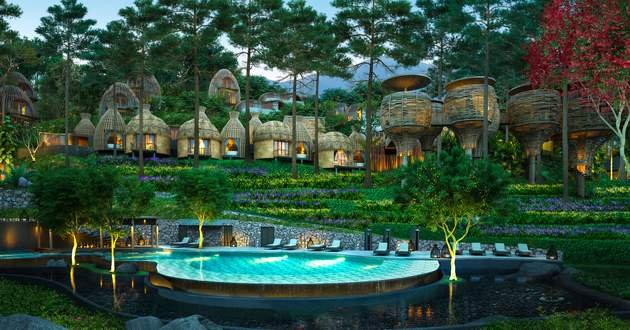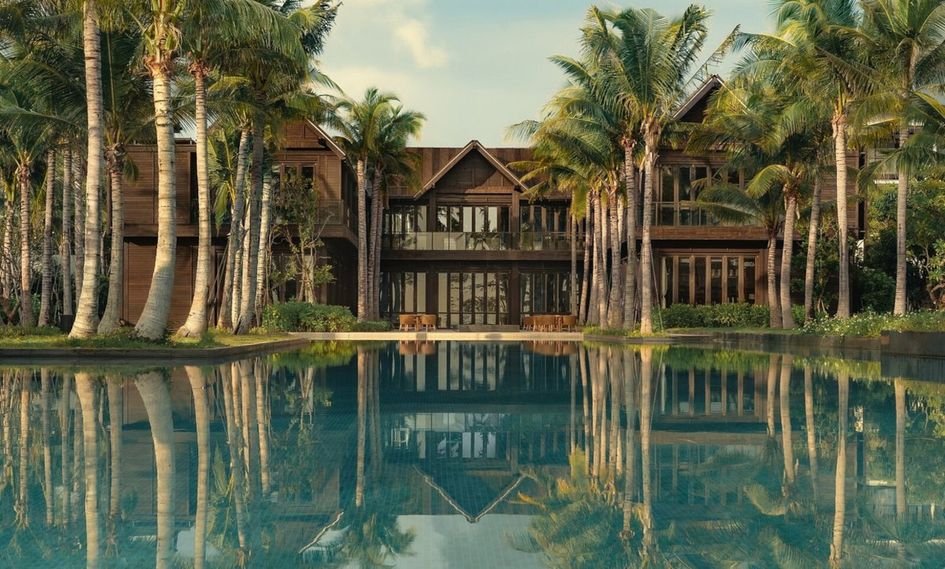Key points
- As international arrivals fluctuate and mass-tourism fatigue sets in, hotel operators are embracing a new era built on cultural immersion, sustainability, and meaningful guest engagement.
- Major hotel groups like Minor and Dusit are redesigning their boutique brands to integrate authentic Thai architecture, regional cuisine, and indigenous design elements—transforming hospitality into a celebration of cultural pride rather than a replication of international standards.
- As global travelers seek experiences with depth, purpose, and sustainability, the Thai hotel sector is positioning itself as a pioneer of conscious luxury.
Thailand Hotel News: Rethinking Tourism Beyond the Numbers
Thailand’s hotel industry is undergoing a transformation as properties across the kingdom pivot from high-volume tourism to quality-driven experiences. As international arrivals fluctuate and mass-tourism fatigue sets in, hotel operators are embracing a new era built on cultural immersion, sustainability, and meaningful guest engagement. This Thailand Hotel News report explores how the next generation of Thai hospitality is reshaping the nation’s travel identity through conscious innovation and local collaboration.

Hotels in Thailand are embracing culture, community, and sustainability as the new cornerstones of hospitality.
Image Credit: Keemala, Phuket
Cultural Immersion Becomes the New Luxury
Hotels from Chiang Mai to Phuket are reimagining the guest experience through culture-first initiatives. Instead of standardized packages, many properties now offer storytelling-led stays, community heritage tours, and workshops with local artisans. These experiences not only add depth to a guest’s journey but also preserve Thailand’s rich cultural identity. Major hotel groups like Minor and Dusit are redesigning their boutique brands to integrate authentic Thai architecture, regional cuisine, and indigenous design elements—transforming hospitality into a celebration of cultural pride rather than a replication of international standards.
Sustainability as a Cornerstone of Future Growth
The global traveler is changing, and so is Thailand’s approach to hosting them. With rising awareness about environmental impact, eco-lodges and sustainable luxury resorts are leading the shift. From solar-powered beachfront villas to plastic-free island retreats, hotels are redefining what responsible tourism means in practice. Many are investing in carbon footprint tracking, renewable energy use, and circular waste systems to ensure long-term viability. Beyond aesthetics, sustainability now extends to food sourcing—chefs increasingly collaborate with local farmers to create farm-to-table menus that highlight regional produce and reduce logistics emissions.

Hotels in Thailand are finding ways to stay relevant as the competition heats up amidst a shrinking market
Image Credit: Kimpton Kitalay Samui
Community-Centered Tourism Gains Momentum
An equally vital aspect of Thailand’s new tourism philosophy is community inclusion. Hotels are creating employment opportunities for nearby villagers, training them in hospitality, crafts, and cultural presentation. In the north, eco-resorts partner with hill tribe communities for cultural exchanges, while in the south, marine conservation partnerships are growing between hotels and local fishermen. These initiatives foster mutual growth—guests enjoy authentic local experiences, and communities gain stable livelihoods and visibility for their cultural heritage.
A Shift Toward Purposeful Travel
This new wave of tourism signals more than a trend—it represents a cultural realignment of Thailand’s hospitality values. As global travelers seek experiences with depth, purpose, and sustainability, the Thai hotel sector is positioning itself as a pioneer of conscious luxury. Moving beyond sheer visitor numbers, the industry is learning that meaningful travel leaves not just memories but lasting impact on both people and the planet.
For the latest on hotels in Thailand, keep on logging to Thailand Hotel News.

